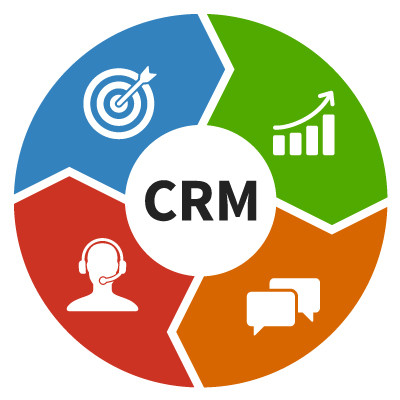Home
About Us
IT Services
Understanding IT
- Understanding General Data Protection Regulation Compliance
- Understanding Automation
- Understanding Ransomware
- Understanding Shadow IT
- Understanding Your Virtual Identity
- Understanding the Modern Office
- IT Threat Glossary
- Understanding Business Continuity
- Windows Server 2003: End of Life
- Understanding the Internet of Things
- Understanding Network Security
- Understanding SOX
- Understanding BYOD
- Understanding PCI DSS
- Windows XP End of Life
- Understanding HIPAA
- Cloud Computing
News
Blog
Support
Contact Us
(713) 979-2090
- Register
- Login
Zinc Blog
One sure sign of a healthy business is that it is growing—possibly to the point that your office space seems less and less spacious. Time to move!
But not so fast: what about your IT infrastructure? Are you prepared to move it? How does one even begin to do that?
It can be tricky to speak to your managed service provider about problems with your technology. However, you can make it easier by following some simple strategies. Today, we want to share some tips that have helped our clients communicate their issues and resolve problems as quickly as possible.
Your customers—both those you currently work with and those you have yet to onboard—are the key to unlocking your company’s potential. Therefore, it stands to reason that you’ll want a solution in place to help you manage the interactions you have with potential customers. This is what a customer relationship management tool, or CRM, is all about. With the right CRM, you can fully leverage your organization’s customer base to maximize profits and attract new leads.
Chances are, some of your employees operate outside the traditional office setting, whether it's occasional remote work or a permanent setup. Consequently, your business needs to furnish your team with the necessary tools and resources to ensure their success. It's a good practice to carefully evaluate the technology you provide, particularly for those who work remotely part-time, and to strategize how your team will access these resources.
You must make difficult decisions in any walk of life, especially in running a business. The most critical decisions will focus on policies that help you keep employees and ensure they are motivated. Today, we want to discuss some of the problems associated with employee churn, or turnover, and what you can do to combat it in today’s modern business environment.
In response to today’s threat landscape, safeguarding technology and data has become a pivotal concern for everyone; and every business. Ensuring the protection of essential assets and customer data within your infrastructure demands a strategic approach. Collaborating with a proficient managed service provider (MSP) is the key to prioritizing security effectively. Here are some critical services they can provide.
Managing a business poses considerable challenges, with a myriad of tasks demanding attention daily just to sustain the status quo. If you want to have a workforce that is not just present but genuinely invested in the enterprise, you will need to actively do more than just go through the motions. The question then becomes: How can one cultivate such dedication? This month, we will take a look at that very question.
Using the right technology can streamline operations, enhance customer engagement, and boost overall productivity. Despite its potential benefits, many small businesses often make significant mistakes when it comes to technology implementation. Let’s explore some of the biggest technology blunders small businesses make and how to avoid them.
IT strategies play a pivotal role in helping companies navigate this complex terrain, but they often require a substantial amount of time to be effectively implemented. This week, we'll explore the reasons behind the seemingly sluggish pace of IT strategy implementation and why patience is indeed a virtue in the world of technology.
Much of our blog content discusses the technology used by businesses as a part of their operations, but technology is extremely valuable for several other parts of running a business, including managing relationships with existing and potential customers. The technology of marketing can be remarkably effective for getting the word out about your goods and services, and you will want to ensure your IT is up to the task of managing it.
Data is a critical asset for modern businesses, simply because it can be utilized to help improve an organization’s operations in a variety of ways. Let’s explore some of the various approaches you can take to leveraging the data you collect to add value to your business.
Businesses make money by providing services to their customers that bring them value. This business model is at the core of managed IT services, where the offerings are widely considered to pay for themselves, so to speak. Individually, the services might not seem like they would impact your bottom line that much, but when combined, they are a force to be reckoned with.
Google is one of the world’s biggest technology companies, but have you ever wondered how exactly it manages to maintain its iron grip on the search engine market? It’s especially curious when you consider that there are other major technology companies out there that might want a piece of the pie, like Apple, yet choose not to. Well, it turns out there is a very good reason for that, and as you might suspect, large amounts of money are involved.
Businesses have been utilizing flexible working conditions in increasing droves, due in no small part to the pandemic, but many continue to hold onto these policies in at least some capacity. Businesses, therefore, need to be very cognizant of data retrieval policies and security measures that can keep their organization safe.
Make no mistake, you want your business to grow. There is no better sign that you are resonating with customers and providing the value you set out to deliver. Unfortunately, for a lot of companies, they simply aren’t prepared when their product or service takes off and it ends up ruining what could be a very good thing. Today, we’ll take a look at three actions you can take to keep your business humming along when it sees extraordinary growth.
When people talk about the growth of technology in business, no small part of that is what the Internet of Things makes possible. From cost control, to automated scheduling, to helping build operational efficiency, the IoT can present a lot of interesting benefits for a business if you strategically implement systems designed to use the data created by smart devices. Let’s take a look at some of the ways IoT works for small businesses.
Last week, we wrote about how patience plays a big role in people’s ability to be productive and efficient. This week we want to explore a few ways to help the people in your organization to become more patient. We all know people in our lives that seem like they could definitely take a chill pill. If that is you, using these four suggestions can help you be more patient in situations that demand it.
Entrepreneurship is extremely frightening to a lot of people, and that’s probably why a lot of people make the choice to work for others. If you think about it, a lot can go wrong; a lot more than can go right. Today, we thought we’d highlight how business owners are able to get through all of the problems to forge ahead and create successful companies.
People can be very productive. They can also be pretty terrible at being productive. The staff that can find consistency in their productivity typically results in a pretty successful business. Obviously, people have all types of suggestions on how to improve staff productivity, individual productivity, and a lot of it is just hitting on the same stuff. There is one variable, however, that is found in a lot of productive people: Patience.
- You are here:
- Home /
- Blog /
- Zinc IT Team /
- HR Isn’t So Tough with the Right Technology




















